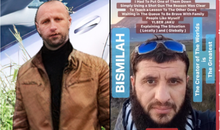
"Israel-Hamas war sparks debate among American youth on social media"

Social media posts from the battlefields, both on the ground and ideologically, of the Israel-Hamas war have polarized young people in the United States, in some cases causing threats or violence. But as VOA correspondent Anthony LaBruto reports, some groups see the growing tension as a need and opportunity for dialogue.
Since the Israel-Hamas war began, social media has been reflecting the latest developments and thoughts on the conflict. But in the United States, all that raw information delivered without context can cause confusion and misconceptions, especially among young people. Brandon Leach is an alumnus of 'American University' and vice president of the American Jewish Committee branch for this university.
"Everyone is faced with a lot of anti-Semitic or pro-Palestinian or pro-Israeli posts online. Instagram is full of them and it's mentally exhausting. I would also say that it is a difficult situation for young people," he says.
At Washington universities, students unite with those who share their views, whether pro-Israel or pro-Palestinian. Both Jews and Palestinians have come out in protests to express their indignation, says Taher Herzallah, director of communications for the American Muslims for Palestine organization.
"As you can see, thousands of members of our Palestinian-American community have come forward to express their anger," he says.
Since Hamas militants attacked Israel on October 7, killing 1,200 people, many social media posts and mainstream media reports have focused on Israel's siege of Gaza, which the Hamas-run Health Ministry figures has causing the death of over 14,000 people.
Such a focus on the situation in Gaza may explain TikTok's data, according to which as of November 13 there were 2.9 million more videos on the platform with the hashtag "#FreePalestine" than those with "#StandwithIsrael".
But TikTok itself warns that simple comparisons cannot be made without proper context. However, according to other studies, support for the Palestinians among young people had increased since before October 7.
TikTok cites Pew Research Center data collected between 2006 and 2016 showing that older generations, who are less likely to be present on the platform, were more likely to support Israel than younger generations.
Some young people see an opportunity for communication in this online polarization. Max Katz and Farid Abdibi created the Left-Middle-Right digital media organization at George Washington University to help George Washington University students and other young people express their opinions.
"I'm sure there are radicalized people on both sides, but the majority on each side engage in accordance with their identity and background. And if both sides sit down at a table, say 'GW [George Washington University] for Israel' and 'Students for Justice in Palestine', and talk, they'll realize they don't hate each other, they don't have problems with each other's beliefs. There is simply a clash of their identities in certain geopolitical circumstances", says Farid Abdidi.
Such communications could provide a virtual truce of sorts between groups radicalized by the Internet, even as current tensions between Israel and Hamas remain high./VOA
Latest news



How did LaCivita change the DP campaign? Berisha: He studied the opponent
2025-05-08 22:49:51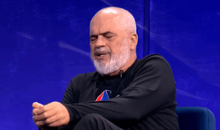

David defeats Goliath
2025-05-08 22:15:50

Journalist: There are SPAK infiltrators in party headquarters
2025-05-08 21:55:15
Who is the new Pope?
2025-05-08 21:48:13
Berisha finally reveals when he will retire from politics
2025-05-08 21:33:46


LaCivita in Lezha: Albanians will fire Edi Rama from his job
2025-05-08 21:11:20


Berisha: LaCivita chose us because he believes in Reagan's program
2025-05-08 20:48:40
He rejected America to serve Pogradec, Genti Çela tells about life in "Elevate"
2025-05-08 20:26:28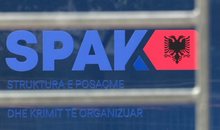




Pope Leo XIV greets the faithful for the first time in St. Peter's Square
2025-05-08 19:29:33




Photo session with LaCivitta in Tirana: For Great Albania
2025-05-08 18:40:18
Source: DASH decision a personal victory for Berisha
2025-05-08 18:30:10
Take off those crazy glasses and see where you've taken him?
2025-05-08 18:02:47
LDK files criminal charges against members of the incumbent Government
2025-05-08 18:02:00






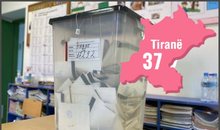
BIRN analysis: Tirana, the determining district for the future majority
2025-05-08 16:04:03




Chris LaCivita's contract with the DP, Berisha: 100% correct and clean
2025-05-08 15:11:11
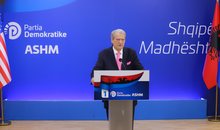
"These are the peak days", Berisha reveals when he will travel to the USA
2025-05-08 14:45:25


Endless boxes with filled-in ballots, DP demands separation of votes from Greece
2025-05-08 14:11:12


Photo/ Who are the 3 associates of Talo Çela arrested in Dubai?
2025-05-08 13:37:09
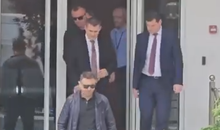
Hetimi për krimet zgjedhore, Altin Dumani zbarkon në Prokurorinë e Shkodrës
2025-05-08 13:06:21
DASH paves the way for Berisha, Alizoti: Great news on the eve of Great Albania!
2025-05-08 13:03:48

"Freedom works", DP welcomes the US position
2025-05-08 12:48:07

Black smoke rises from the Sistine Chapel, the Vatican still without a Pope
2025-05-08 12:26:18
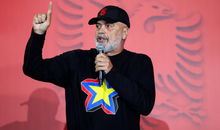




Davide Pecorrelli extradited to Albania
2025-05-08 11:29:04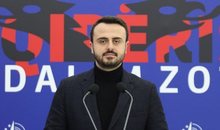
'May 11, Albania will react', Xhaferri: Electoral criminals will pay
2025-05-08 11:21:46

Gjin Gjoni: Non Grata fell, Rama should get ready to go to McGonigal
2025-05-08 11:01:54
May 8th deadline for immigrants to vote in Greece extended by one day
2025-05-08 10:48:42
Collapse of massive chrome structure, still no trace of 29-year-old
2025-05-08 10:40:04
Vehicle bursts into flames in Paris Commune
2025-05-08 10:25:43
He gave land to his father and cousin, Basir Çollaku denounces the SP candidate
2025-05-08 10:16:16
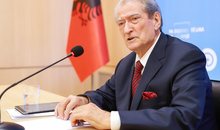



Electoral Crimes/ BKH agents and Police conduct checks in Shkodra
2025-05-08 09:19:13
3 associates of Talo Çela arrested in Dubai
2025-05-08 09:02:28
Mouse in the owl's claws, Chris LaCivita responds directly to Rama
2025-05-08 08:45:40
Foreign exchange, how much foreign currencies are sold and bought today
2025-05-08 08:30:38
BIRN: Organized crime, the 'invisible party' of the Durrës elections
2025-05-08 08:26:35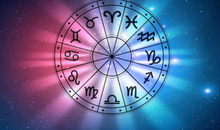
Horoscope, what do the stars have in store for you today?
2025-05-08 08:08:15
Cloudy and rainy, what the weather is expected to be like throughout the day
2025-05-08 07:52:13
Posta e mëngjesit/ Me 2 rreshta: Çfarë pati rëndësi dje në Shqipëri
2025-05-08 07:40:16


Rama attacks Bardhi: Fier cannot be represented by the world's gas
2025-05-07 22:36:22
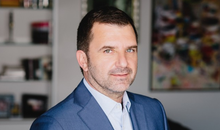
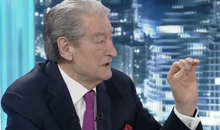
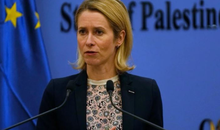
EU calls on Israel to lift humanitarian blockade in Gaza
2025-05-07 21:42:34
"Russia is "asking for a lot"! Vance calls for direct Moscow-Kiev talks
2025-05-07 21:20:16





Bank of Albania sets limits on home loans, Sejko: The maximum will be 85%
2025-05-07 20:16:10


EP calls for immediate lifting of measures against Kosovo
2025-05-07 19:39:58